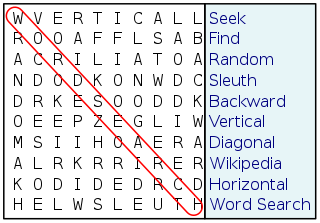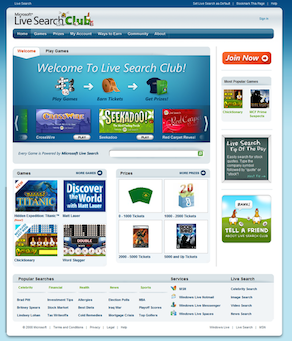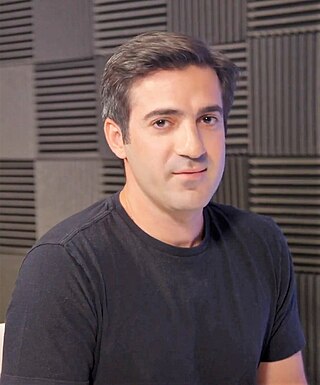
Google Search is a search engine provided and operated by Google. Handling more than 3.5 billion searches per day, it has a 92% share of the global search engine market. It is the most-visited website in the world. Additionally, it is the most searched and used search engine in the entire world.
Word games are spoken, board, or video games often designed to test ability with language or to explore its properties.

Online skill-based games are online games in which the outcome of the game is determined by the player's physical skill or mental skill. As in off-line games of skill, the definition has legal meaning, as playing games of chance for money is an illegal act in several countries.
A Google Doodle is a special, temporary alteration of the logo on Google's homepages intended to commemorate holidays, events, achievements, and notable historical figures. The first Google Doodle honored the 1998 edition of the long-running annual Burning Man event in Black Rock City, Nevada, and was designed by co-founders Larry Page and Sergey Brin to notify users of their absence in case the servers crashed. Early Marketing employee Susan Wojcicki then spearheaded subsequent Doodles, including an alien landing on Google and additional custom logos for major holidays. Google Doodles were designed by an outside contractor until 2000, when Page and Brin asked public relations officer Dennis Hwang to design a logo for Bastille Day. Since then, a team of employees called "Doodlers" have organized and published the Doodles.

A word search, word find, word seek, word sleuth or mystery word puzzle is a word game that consists of the letters of words placed in a grid, which usually has a rectangular or square shape. The objective of this puzzle is to find and mark all the words hidden inside the box. The words may be placed horizontally, vertically, or diagonally. Often a list of the hidden words is provided, but more challenging puzzles may not provide a list. Many word search puzzles have a theme to which all the hidden words are related such as food, animals, or colors. The puzzles have, like crosswords and arrowords, become very popular. Also in common with these latter puzzles, have had complete books and mobile applications devoted to them.
Perplex City was an alternate reality game created by the London-based developer Mind Candy under the direction of the lead producer and designer, Adrian Hon, that ran from April 2005 to February 2007. The first "season" of the game had players looking for "The Receda Cube", a priceless scientific and spiritual artifact to the people of a fictional metropolis known as "Perplex City", which had been stolen and buried somewhere on Earth.
Games World of Puzzles is an American games and puzzle magazine. Originally the merger of two other puzzle magazines spun off from its parent publication Games magazine in the early 1990s, Games World of Puzzles was reunited with Games in October 2014.

A puzzle hunt is a puzzle game where teams compete to solve a series of puzzles. A puzzle hunt can happen at a particular location, in multiple locations, or via the Internet. In a puzzle hunt, a puzzle is usually not accompanied by direct instructions for how to solve it. Puzzles may come in familiar types such as crossword puzzles, jigsaw puzzles, cryptograms, and others, but often involve an additional twist beyond the usual structures of such puzzles that solvers must discover. Other puzzles may have innovative structures whose mechanics solvers must work out from scratch. The answer to a puzzle is generally a word or phrase. Groups of puzzles in a puzzle hunt are often connected by a metapuzzle, which is a puzzle based on combining or comparing the answers of other puzzles.

Wilson Casey is an American columnist, book author, political humorist, entertainer, speaker, and record holder. He earned two Guinness World Records for a thirty-hour live, continuous broadcast on radio station WKDY-AM on January 9–10, 1999 in Spartanburg, South Carolina. During the 30 hours he asked and identified the correct answer to 3,333 questions. Casey is regularly called and labeled "The Trivia Guy".

Club Bing was a group of online word games by Microsoft that lasted from April 2007 to May 2012. Players who completed or partially completed a game earned "tickets" that could be exchanged for Microsoft or other products. The site was credited with a significant increase in market share for the search engine Bing.

You Don't Know Jack is a video game released in 1995, and the first release in the You Don't Know Jack video game series.
Bonza is a single-player crossword puzzle application developed by MiniMega, which was chosen by Apple to become part of the App Store's Best of 2014 list.

Jewels of the Oracle is a 1995 adventure game developed by ELOI Productions and published by Discis Knowledge Research Inc. It was released on Macintosh, PlayStation, Sega Saturn, and Windows. A sequel developed by Bardworks and published by Hoffman and Associates was released in 1998 entitled Jewels II: The Ultimate Challenge.

Google Feud is a browser-based trivia game featuring answers pulled from Google. It is based on the American show Family Feud, and is unaffiliated with Google.

HQ was a mobile trivia game developed by Intermedia Labs for iOS, Android, iPadOS, and tvOS. First released in 2017, the HQ app allowed users to play in daily live trivia games, through which they could win or split prize money. HQ was developed by Vine creators Rus Yusupov and Colin Kroll, and credited as a production of Intermedia Labs.

Rus Yusupov is a designer and tech entrepreneur. He is best known as the co-founder of Vine and the co-founder and CEO of HQ Trivia.

Wordscapes is a word puzzle video game created by the American studio PeopleFun, available on Android and IOS. Wordscapes was a top 100 ranked game on the Google Play Store, and the App Store. As of 2020, over 14 million people have played Wordscapes.
Wordle is a web-based word game created and developed by Welsh software engineer Josh Wardle. It was bought by the New York Times Company in 2022 who has since maintained and published it. Players have six attempts to guess a five-letter word, with feedback given for each guess in the form of colored tiles indicating when letters match or occupy the correct position. The mechanics are nearly identical to the 1955 pen-and-paper game Jotto and the television game show franchise Lingo. Wordle has a single daily solution, with all players attempting to guess the same word.











